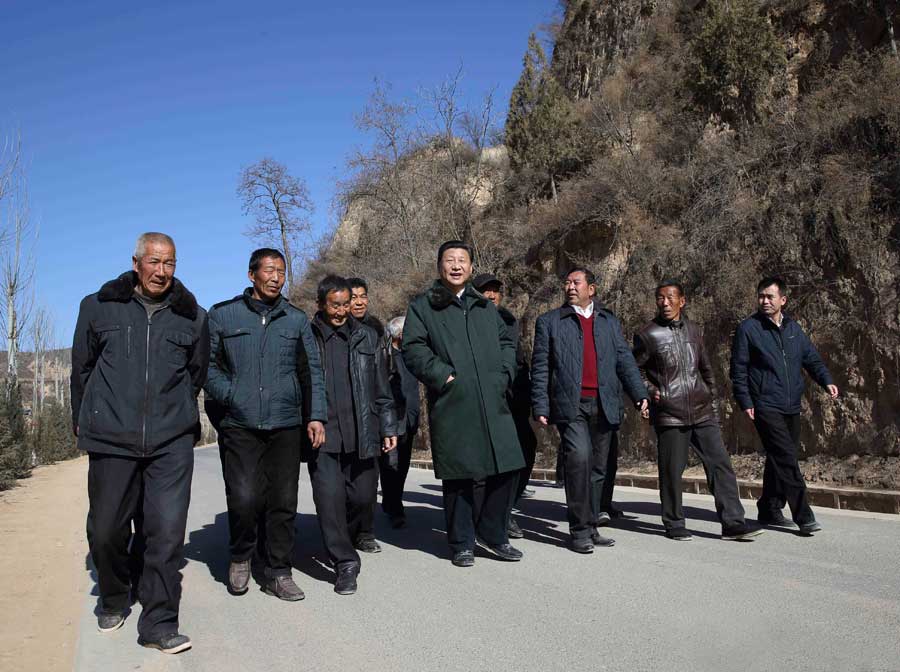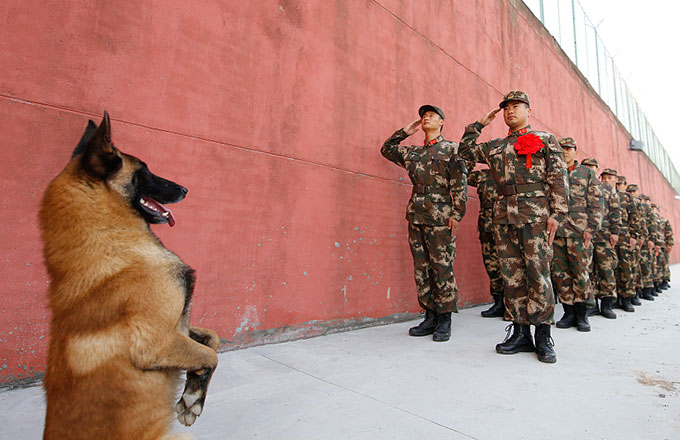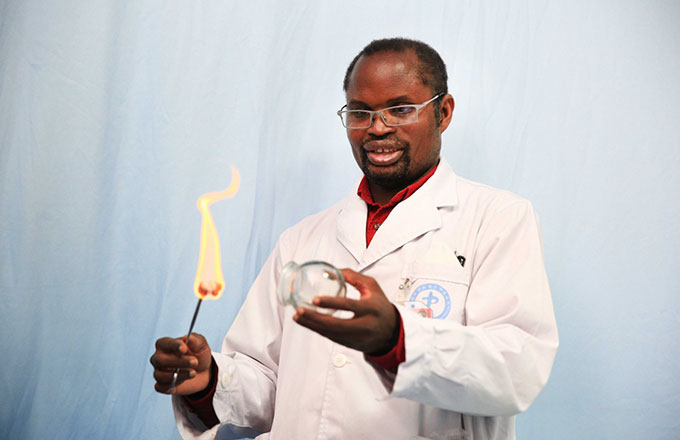Profile: Xi Jinping and his era
 |
|
Xi Jinping visits people in Liangjiahe village, Wen'anyi township of Yanchuan county, Yan'an, Northwest China's Shaanxi province, Feb 13, 2015. [Photo/Xinhua] |
CPC core forged during 'great struggle'
When Xi assumed office five years ago, his top priority was to ensure that the whole Party shall obey the Central Committee and uphold its authority and its centralized, unified leadership. The Party had to face up to its lack of drive, incompetence, disengagement from the people, inaction, and corruption. Of those failings, corruption became the biggest challenge. In Xi's opinion, if corruption got any worse, it would cause the collapse of the Party and the fall of the state. Achieving any target in the new era would be impossible.
The campaign against corruption was like no other in the 96-year CPC history, and remains as far-reaching and relentless as any such campaign anywhere in the world. One of the first "tigers" -- senior corrupt officials -- to fall was Li Chuncheng, former deputy secretary of the CPC Sichuan provincial committee. He had served as an alternate member of 18th CPC Central Committee for less than a month when he was put under investigation in December 2012. Soon, probes of centrally administered officials became an almost regular occurrence. Once as many as seven "tigers" fell under the gaze of investigators in a single month.
Even though the public had witnessed the full force of the campaign, the announcement in July 2014 that Zhou Yongkang, former member of the Standing Committee of the CPC Central Committee Political Bureau, was under investigation came as a bolt from the blue. Previously, Chinese people had doubted that the CPC would investigate officials at such a high level. The international community had not expected that Xi, still quite new to his office, had the capability or resolve to take out such a "big tiger."
Over the past five years, a number of officials with "iron hats" -- those who were considered powerful and not easily removed -- have been felled for corruption. Besides Zhou Yongkang, there were Bo Xilai, Guo Boxiong, Xu Caihou, Sun Zhengcai and Ling Jihua. A total of 43 members and alternate members of the 18th CPC Central Committee as well as nine members of the Central Commission for Discipline Inspection (CCDI) have been investigated.
Dispelling any doubt, Xi said, "If we did not offend hundreds of corrupt officials, we would offend 1.3 billion Chinese people." To those who worried that corruption would impede economic development, Xi said, "As far as I see, the sky will not fall."
Xi's path has been far from smooth. Rather, it is one of "struggle," a word which appeared 23 times in his report to the 19th CPC National Congress.
In 2015, the anti-corruption drive was described as at "a stalemate." In 2016, the CPC was "gaining ground to overcome corruption." Today, the anti-corruption campaign has built into a crushing tide, is being consolidated, and continues to develop. Fugitives overseas have found themselves hunted down and captured. Domestically, thousands of officials confessed to disciplinary authorities on their own initiative.













